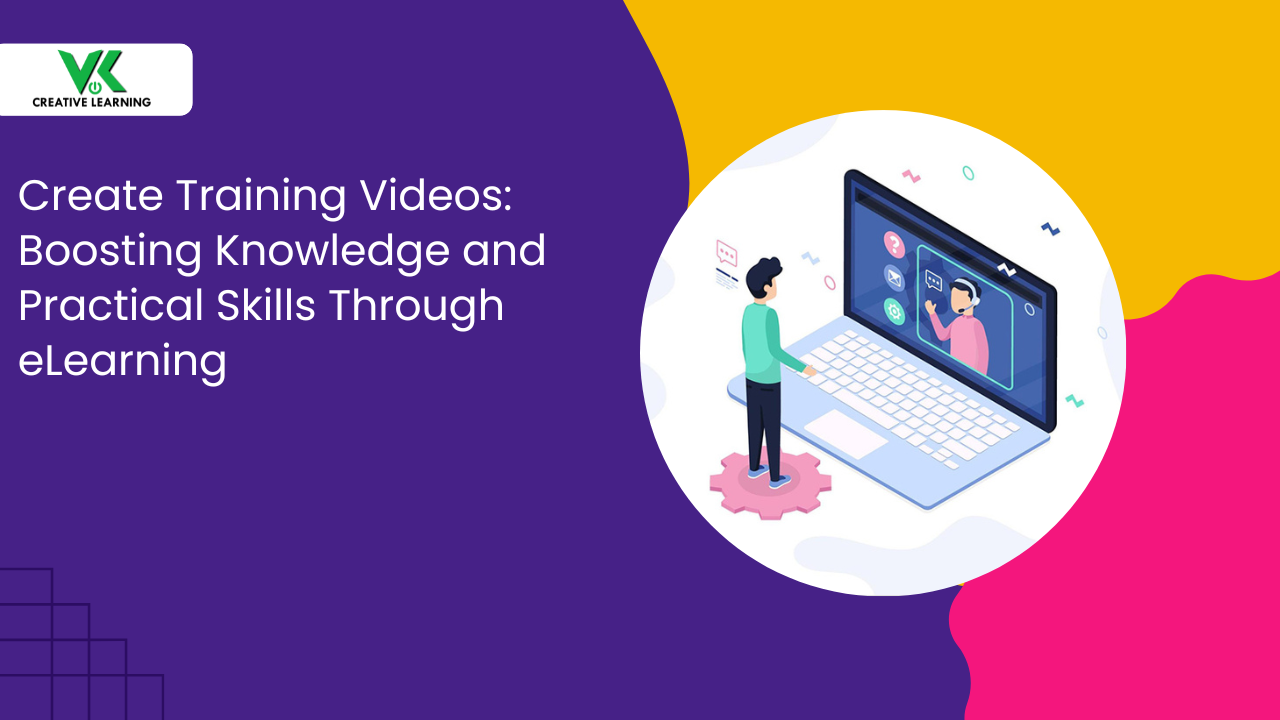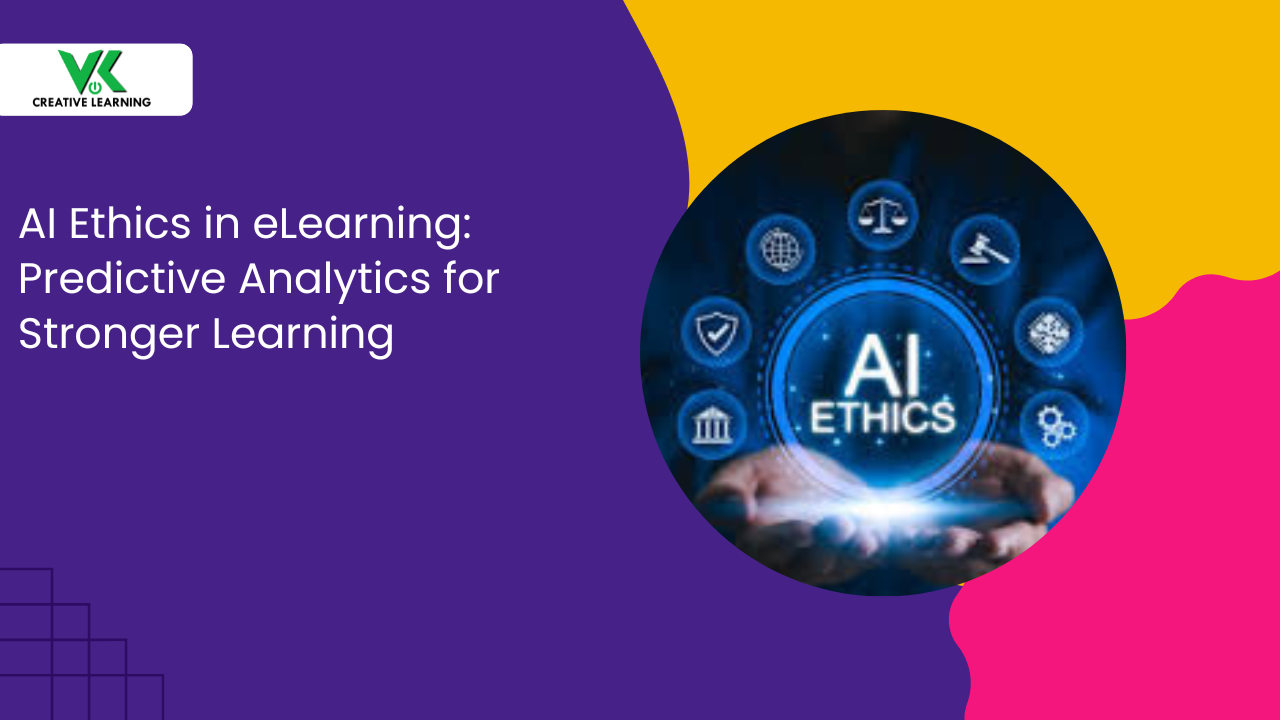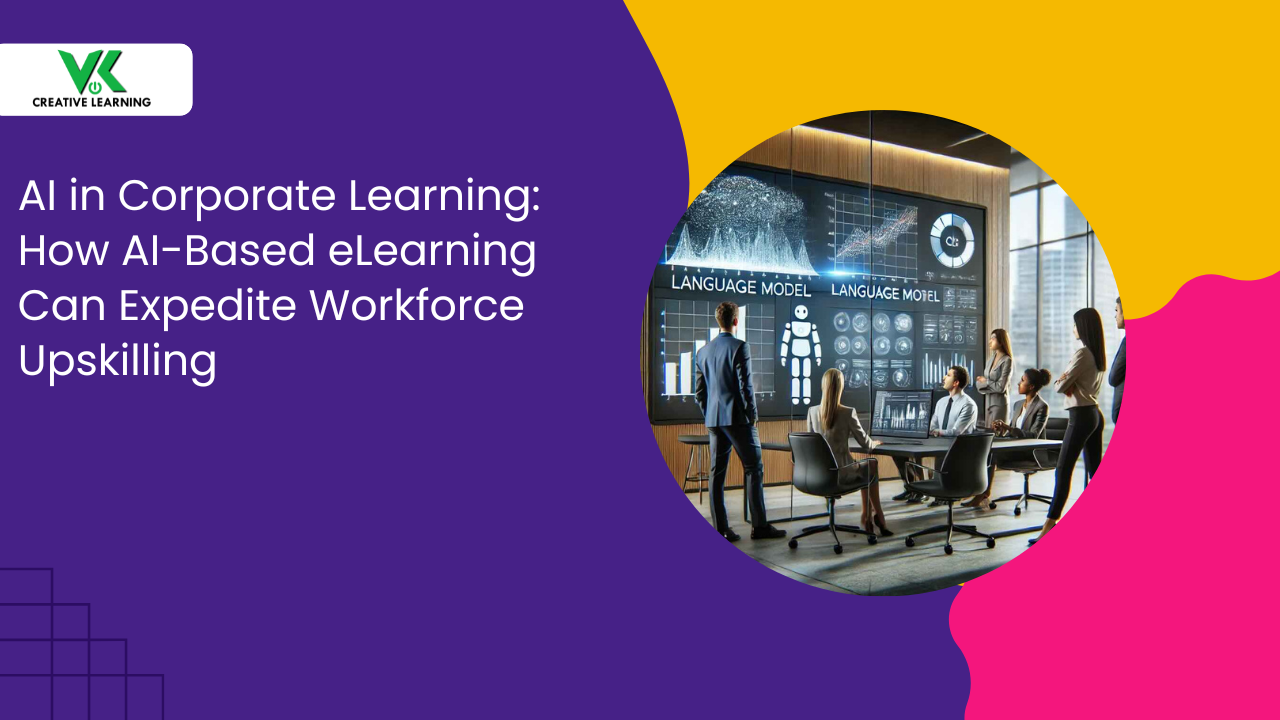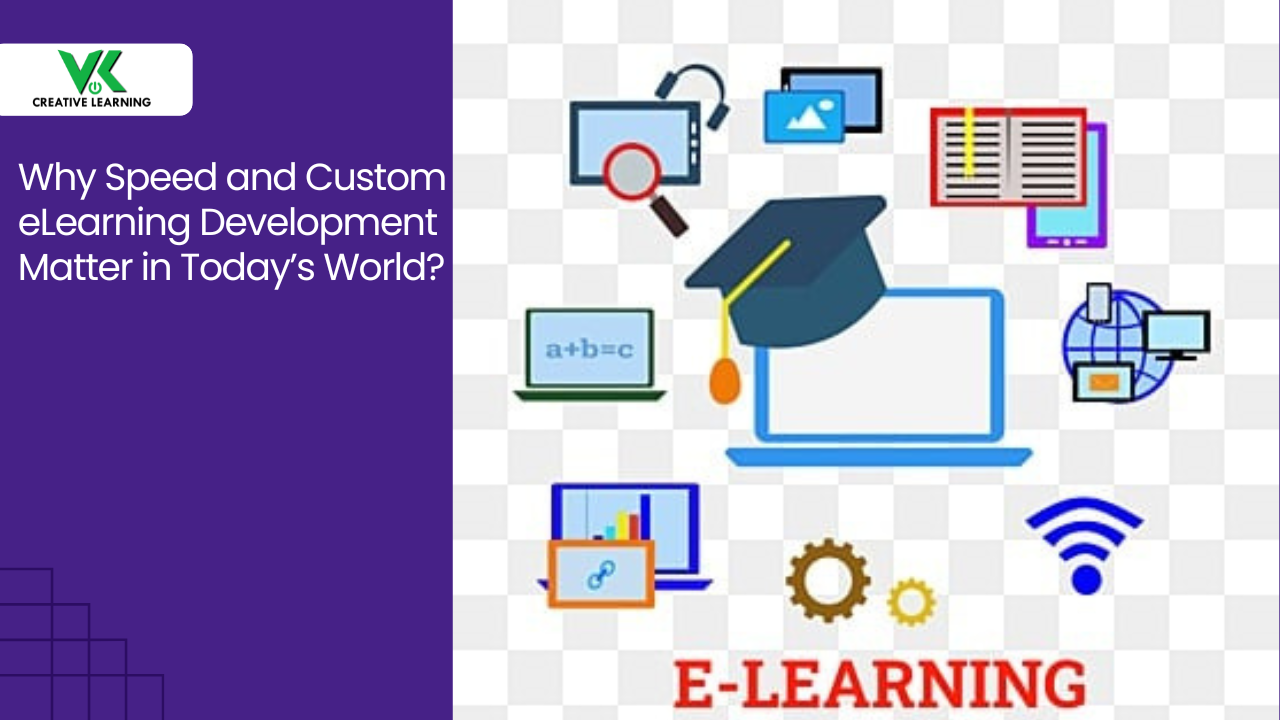The Hidden Link Between Production Bottlenecks and Poor Training -- And How Custom E-Learning Solves It
April 21, 2025
The patchy existence of knowledge in employees can lead to extensive level of inefficiencies (misaligned processes, lost output) in production systems. This may cause ripple effects across automotive assembly, electronics production, textile manufacturing, corporate functioning, and more.
Traditional training methods -- may lack punch and relevance -- can be a reason for the stunt in skill enhancement initiatives. The employees in software development, healthcare administration, and logistics management may all remain devoid of necessary information.
Result: rising production bottlenecks (workflow clogs, missed deadlines, idle capacity). This would lead to breakdown of employees’ efficiency if training is ignored further.
This is true for any workforce performance in retail operations, construction sites, and financial services.
This may also cause disruption in operations and affect well?coordinated teamwork. Thus, training strategies should be such that unproductive production workflows don’t arise.
Specially in sectors such as energy plants, automotive assembly, and IT companies, upskilling matters a lot. These hurdles drive forward information gain (speedy learning, timely insight, sharp execution) on time. This also results in critical growth gaps and bridge pivotal advancement voids. This can happen in educational institutions, hospitality, corporate, and customer service centers -- improvement needs urgent care.
The approach to custom e-learning development courses can change these scenarios massively. This is because custom e-learning development services cater virtual courseware that suits the particular needs of the individuals.
In fact, custom e-learning courses can drastically improve the upskilling process (through diagnostic software, simulation tools, and adaptive content). These can increase overall productivity.
Table Of Contents:
What Are Custom E-Learning Courseware Development Solutions?
Various Challenges Trainees Face And How Custom E-Learning Can Address Them
- Non-Effective Training Methodologies
- Upskilling on Production Issues
- Inadequate Coordination
- Non-alignment with Production Demands
- Strategic Imperatives to Bridge Training Gaps
Application of E-learning Platforms in Different Sectors
- Manufacturing Operations Demand Precise Custom Training Solutions
- Healthcare Sector Faces Critical Training and Production Misalignments
- Retail Industry Training Lapses Affect Customer Engagement Metrics
What Are Custom E-Learning Courseware Development Solutions?
Custom e-learning courseware development are made in such a way that personalized paths can be created -- ideal for learners. In other words, they are developed keeping in consideration all challenges that learners face. Thus, they are designed for specific production challenges (e.g., in banking, aviation, retail, and other sectors).
Importantly, it lines up innovative features for knowledge seekers. So, content is created with operational schedules, reducing bottlenecks. This also helps to enhance skill progression (in tech manufacturing, food services, and corporate management).
Above all, this approach is geared toward workforce training through the precise alignment of learning objectives and production demands (in logistics, legal departments, and healthcare clinics).
E-learning development services also encompass feedback mechanisms based on their skill assessment. Thus, tailor-made courses come in handy for employees call centers, educational institutes, and logistics coordination.
The best aspect: the focus on personalized content contrasts sharply with generic courses. Reason: it meets industry-specific challenges. Along with these industries, it aids the workforce in IT project management, service delivery, and manufacturing processes.
Various Challenges Trainees Face And How Custom E-Learning Can Address Them
Non-Effective Training Methodologies: Subpar training modules when implemented can lead to diminishing readiness of jobs, knowledge acquisition, and dent confidence. This can be observed in call centers, retail services, and banking operations.
Also, old and run-of-the-mill training formats can fail to meet dynamic industry requirements., This can lead to less engagement and upskilling will be affected in technological research, hospitality management, and public relations settings.
Also, the use of overly generic content can restrict professionals’ growth across sectors (e.g., in legal practices, healthcare setups, and engineering workshops).
Importantly, sporadic upskilling opportunities could weaken workforce adaptability and they will not be motivated to evolve to the challenging needs. This is applicable in logistics centers, educational bodies, and retail outlets.
Furthermore, limited interactive training experiences can further block skill developments; performance metrics may take a nosedive.
Thus, for upskilling, custom e-learning courseware development can be the best bet. The reason being, it entails 3D explainer videos, 2D animations, and simulations for explaining the concepts along with other support. It is also accessible for learners as when needed.
Upskilling on Production Issues:
If employees aren’t upskilled on time, then it would lead to frequent throttling of work processes. In other words, the learning momentum within organizations will get misaligned. This delay in skill acquisition timelines can severely affect assembly line optimization, equipment calibration, and safety protocols.
Furthermore, there can be machine downtimes as employees may not be able to operate them. This efficiency in various processes can degrade the usual working routines.
This disruption in work routines can be in pharmaceutical labs, transportation hubs, and logistics centers.
Custom e-learning courses are specifically designed to teach employees to handle various production issues. For the same, 3D explainer videos, simulations, infographics, and more elements are incorporated for elaborate explanation.
Inadequate Coordination: If employees are not regularly given training on coordination, then it may have its own consequences.
In fact, flawed communication channels in manufacturing units stir up training mismanagement. This adds to overall operational setbacks (e.g., in warehousing, logistics, and production plants).
Also, rushed production targets can bypass opportunities in case of systematic skill upgrades. Result: deepening of the training-production chasm in retail logistics, food processing, and service industries.
Thus, custom e-learning training on communicating with team members and other departments can be helpful. Using custom e-learning course development, it becomes possible to assess performance metrics. Hence, it can be useful in auto repair shops, IT support centers, and consulting firms.
Non-alignment with Production Demands:
It is often noticed that modern enterprises have mounting pressures in increasing productivity. This happens when training needs are not aligned with production demands (agile workflows, supply targets, market timelines) for sustained growth.
This is evident in design firms, industrial units, and educational centers -- unfolding vividly. Thus, continuous skill enhancement of employees may take a nosedive as upskilling lacks traction. Thus, knitting training with production planning (forecasting dashboards, batch planning, inventory cycles) makes a big difference.
However, custom e-learning course development can be helpful as it involves innovative training frameworks (scenario mapping, gamified drills, adaptive modules). Thus, industries such as IT enterprises, healthcare systems, and manufacturing plants can reap a lot.
Strategic Imperatives to Bridge Training Gaps:
A gap in strategic learning investments (modular curricula, video tutorials, LMS tools) could further limit advancements in both production and training quality. This pattern prevails in retail banking, commodity trading, and media agencies – shortcomings unaddressed!
These disconnects can be bridged with coordinated efforts (custom modular curricula, 3D animations, and LMS e-learning tools. Incorporation of these could help to set forth workforce training frameworks swiftly.
Precisely, custom e-learning courseware development can be useful in public utilities (scenario mapping, gamified drills), logistics networks, and tech start-ups.
With custom-based training, enhanced collaboration can be set forth between operations and learning teams. This measure springs into a transformative approach (blended approaches, real-time feedback loops, storytelling pathways).
Also, production efficiency, as a consequence, sees a measurable uplift in consulting rooms, industrial workshops, and academic institutions.
Application of E-learning Platforms in Different Sectors
Manufacturing Operations Demand Precise Custom Training Solutions
In manufacturing, outdated methods can trouble productivity. Additionally, it can impact the acquisition of knowledge and new skills. In this process, quality is undermined massively. Also, fragmented processes open up requirements of multiple skills in daily operations. This has the potential to severely affect the overall output (e.g., in process optimization, resource allocation, and workflow management).
Additionally, manual record-keeping procedures can lack the facilities of digital learning processes, such as real-time performance tracking. This is especially observed when it comes to inventory control, machine monitoring, and compliance audits.
On the other hand, the utilization of custom e-learning courseware development (modules) can light up and aid to overcome these challenges. In fact, with multiple useful features, it becomes possible to have streamlined operations.
Furthermore, theoretical instruction can go hand-in-hand with workplace applications (equipment handling, quality control, and process innovation).
Healthcare Sector Faces Critical Training and Production Misalignments
In healthcare institutions, complex procedures can slow down the training process, impacting patient care efficiency. This is evident in surgical protocols, emergency response, and diagnostic procedures.
Thus, any form of upskilling efforts that is inefficient by nature can lead to shortfalls of skilled employees. As a consequence, this may rock up the training on medical equipment usage.
Also, non-continuous upskilling will have dire results on patient management (radiology, intensive care, and outpatient services).
Also, traditional methodologies will not have practical relevance. Hence, learning retention will be diminished during critical scenarios (e.g., in medication administration, patient triage, and therapy sessions).
Thus, custom e-learning development with simulation-based training can serve the needs of the healthcare system. Moreover, for in-depth understanding, simulations and customized 3D animations provide immersive clinical experiences. Hence, it proves useful in comprehending patient interactions, crisis simulations, and diagnostics training.
Retail Industry Training Lapses Affect Customer Engagement Metrics
Retail environments, at times, can be volatile, and hence, employee turnover cannot be averted. The chief reason: insufficient training when it comes to standards set in customer service. These include point-of-sale interactions, inventory management, and merchandising.
Also, actual scenario practice may be lacking in conventional systems and, therefore, may not address complex consumer queries. That is, in cases of conflict resolution, product recommendations, and service enhancements.
Additionally, sales performance could see a dip when training is not aligned with quickly changing market trends. This can put stress on overall profitability (especially during seasonal promotions, online sales, and customer feedback loops).
Custom e-learning courseware development can overcome these situations by providing Interactive e-learning modules. The best aspect: they offer real-time updates. This assists employees to adapt with evolving consumer expectations (e.g., in digital storefronts, loyalty programs, and customer service training).
Furthermore, custom course development improves retail training in a significant manner and it elevates customer engagement. The main reason is that through 3D explainer videos, 2D animations, and simulations, employees' efficiency on operations improves considerably. The use of interactive elements of a custom e-learning platform can be useful in complaint management, upselling techniques, and staff responsiveness.
Conclusion
Custom e-learning development can entirely change the way concepts are taught to the employees. It will make them progressive in the workplace in terms of knowledge. Importantly, it will ensure that they stay in sync with market needs and evolving technologies.
With 3D animations, educational-based graphics on topics related to field, simulations, and other elements in custom e-learning solutions, they will achieve new heights.
A personalized e-learning platform can be developed by approaching custom e-learning development companies like VK Creative Learning.
They are known for creating customized learning platforms exactly the way a firm needs. Also, all interactive elements, assessments exercises, and tracking elements will be included in the solution.




